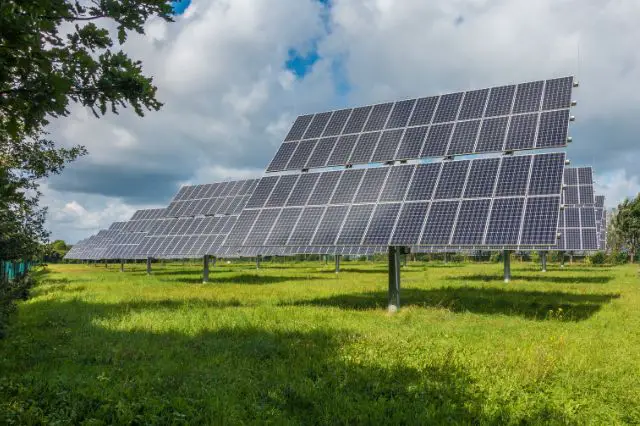Do You Save Money with Solar Panels?

Investing in solar panels is often driven by a combination of elements, including the desire to reduce energy costs, contribute to environmental sustainability, and achieve energy independence.
While the initial costs of installing solar panels can be a consideration, the long-term benefits of forging your electricity from a renewable source can result in substantial financial savings.
Let’s delve into how solar panels can usher economic advantages and investigate the broader implications for homeowners and the environment.
1. Reduced Electricity Bills
One of the most significant forms solar panels save you money is by reducing your electricity bills. Solar panels harness energy from the sun and convert it into electricity, which can be used to power your home’s appliances and lighting. As you generate your electricity, you rely less on electricity supplied by your utility company, resulting in lower monthly bills.
Depending on your solar system’s size and energy consumption, you can potentially eliminate or significantly reduce your electricity bills altogether.
2. Return on Investment (ROI)
While the initial investment in solar panels might seem substantial, viewing it as a long-term investment with a promising return is essential. Solar panels have a lifespan of 25 years or more, during which time they generate electricity that can offset or even exceed the installation costs.
As you save money on electricity bills, the savings accumulate over the years, ushering in a positive return on your initial investment. Many homeowners find that the ROI from solar panels rivals or surpasses many traditional investment alternatives.
3. Net Metering and Excess Energy
Net metering, a common practice in many regions, enables you to earn credits for excess energy your solar panels generate and feed back into the grid. During sunny periods, when your solar system produces more electricity than you consume, the surplus energy is sent to the grid, and you receive credits on your utility bill.
These credits can offset the electricity you use when your solar panels aren’t generating power, such as during nighttime or cloudy days. Net metering effectively reduces your electricity costs and maximizes your savings.
4. Protection Against Rising Energy Costs
Energy prices can be unpredictable, and many regions experience periodic increases in electricity rates. By installing solar panels, you insulate yourself from the impact of rising energy costs. As the cost of grid electricity increases, the value of the electricity your solar panels produce remains constant or even increases, resulting in more significant savings over time.
Solar panels provide a level of cost predictability, allowing you to budget more effectively and avoid unexpected spikes in your energy expenses.
5. Environmental Benefits and Cost Avoidance
While the financial benefits of solar panels are compelling, it’s paramount to reckon with the broader environmental implications. Solar energy is a clean and renewable source of power that produces minimal greenhouse gas emissions compared to fossil fuels.
By generating your electricity from the sun, you contribute to reducing carbon emissions and combatting climate change. Moreover, investing in solar panels can help sidestep the future costs associated with environmental damage caused by traditional energy sources.
6. Government Incentives and Tax Credits
Government incentives and tax credits at the federal, state, and local levels can significantly impact the financial viability of solar panel installations. These incentives aim to promote the adoption of renewable energy and provide financial support to homeowners and businesses.
For instance, the Federal Investment Tax Credit (ITC) allows you to claim a percentage of your solar installation costs as a tax credit. State-level incentives and rebates further enhance the financial benefits of going solar, making the initial investment more affordable.
7. Increased Home Value
Installing solar panels can also enhance the value of your property. Studies have shown that homes equipped with solar panels sell at higher prices and spend less time on the market than homes without solar systems.
Prospective buyers are usually attracted to reduced energy bills and the environmental benefits of solar energy. The added home value contributes to your overall financial well-being and provides an additional financial incentive for investing in solar panels.
8. Maintenance and Longevity
Solar panels are known for their durability and low maintenance requirements. They have no moving parts and are designed to withstand various weather conditions. Regular maintenance usually involves occasional cleaning and ensuring the panels are debris-free.
With proper care, solar panels can continue producing electricity efficiently for decades, further solidifying their role as a long-term investment that provides continuous financial benefits.
Investing in solar panels offers many financial benefits, ranging from reduced electricity bills and a positive return on investment to protection against rising energy costs and increased property value.
These benefits, environmental advantages, and government incentives make solar panels an appealing option for homeowners looking to save money while contributing to a sustainable future.
As the renewable energy landscape continues to evolve, solar panels’ financial and environmental gains position them as a wise choice for those seeking immediate and long-term financial savings. Exploring The Cost of Solar Panels in Massachusetts can help residents make informed decisions about harnessing solar energy for their homes.





